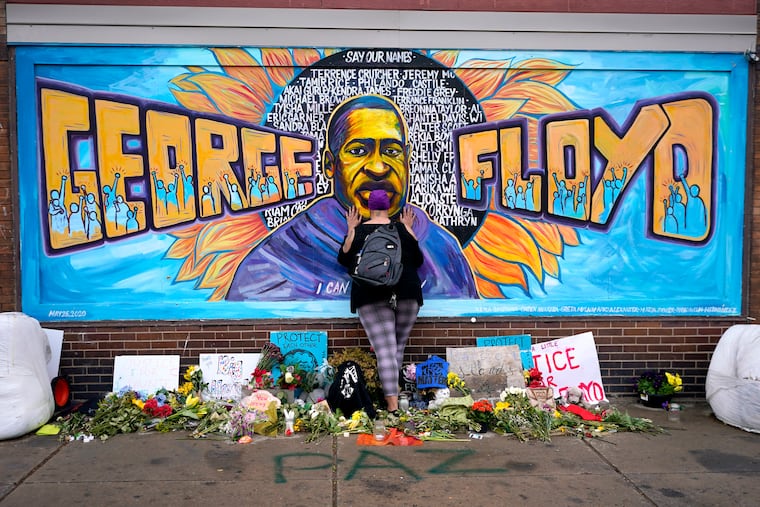Philly’s civil forfeiture lawsuit may provide a road map for reparations for Black America | Solomon Jones
There's no doubt that reparations are owed, Solomon Jones writes. The question is how to go about securing them. One way may include replicating the suit against the Civil Asset Forfeiture Program.

As George Floyd’s death so starkly reminded us, unarmed Black people are three times more likely to be killed by police than their white counterparts. That’s a frightening prospect, given that the overpolicing of Black communities leads to more frequent encounters with law enforcement.
In short, Black people have been intentionally and systematically targeted by drug laws and by law enforcement, even though Black people are no more likely to use or sell drugs than white people. With nearly 300,000 people imprisoned for drug crimes in 2018, and the Black rate of imprisonment nearly twice the rate of Hispanics and more than five times that of whites, Black communities have been decimated by the War on Drugs.
The costs go well beyond mass incarceration. From asset forfeiture to broken families to lives lost in encounters with police, Black people have lost much in this endless “war.” There is no doubt that reparations are owed. The question is how to go about getting them.
Simply put, we can achieve reparations on a national scale by replicating the successful lawsuit against Philadelphia’s Civil Asset Forfeiture Program. Though the suit yielded just $3 million for people whose property was unjustly taken or never returned, the verdict sets a precedent that should yield greater settlements for future claimants.
» READ MORE: Drafting a fresh blueprint for racial justice | Solomon Jones
Organizations such as the American Civil Liberties Union are uniquely positioned to file such suits. The ACLU’s Criminal Law Reform Project is already examining the issue of civil asset forfeiture. In its explanation of such programs, the ACLU has said the property seizures, which benefit the very agencies that use them, are “motivated by profit rather than crime-fighting.”
Sourovelis v. City of Philadelphia has provided a road map for correcting that wrong, and if Floyd’s death served as the catalyst for reexamining such programs, then his sacrifice, at least, was not entirely in vain.
However, receiving reparations for the War on Drugs is simply the opening salvo in the battle for all that was unjustly taken from Black people. We are owed for the stolen labor that built America. We are owed for the stolen property taken from Black farmers and others in the years after enslavement. We are owed for the stolen lives that were taken through lynching and other race-related terrorism.
How to achieve it, though? In this, I am in agreement with Ta-Nehisi Coates, who identified the first step as the passage of the late Rep. John Conyers’ bill, HR 40, which calls for the study of reparations to African Americans.
» READ MORE: It’s time to support the Black men in Philadelphia being destroyed by gun violence | Solomon Jones
However, our fight will not be won solely by political means. Politics, after all, is the art of compromise, and on the issue of reparations, we must not compromise.
Our tactics must primarily be driven by capitalism — the same principle that drove America to abuse and exploit Black people from the moment we were brought to these shores. Money, after all, is the one thing America understands, and African Americans have $1.3 trillion in annual spending power.
That financial power is our most potent weapon against America’s recalcitrance, and we must use it with the kind of targeted proficiency that will force America to the table.
We must target corporate America with boycotts. In the spirit of the Rev. Dr. Leon Sullivan, who used economics to force companies to hire Black workers, and later used the Sullivan Principles to force South Africa to abandon apartheid, Black Americans must withhold our money in order to build consensus for reparations.
To do this effectively, we must target one company at a time, with massive protests, both in person and on social media. We must do so to force them to the table as allies in the fight for reparations.
Changing the racist structure of criminal justice in the future must begin with paying for its past.
“Changing the racist structure of criminal justice in the future must begin with paying for its past.”
We demand reparations. America must publicly admit what the numbers bear out: that its racist laws have consistently criminalized Black people, most recently through the War on Drugs, which continued a centuries-long pattern of stripping profit, property, and people from Black communities. America must then embark upon the financial repair of Black communities that have been damaged by legalized racism.
This article was adapted from “Ten Lives, Ten Demands: Life-and-Death Stories and a Black Activist’s Blueprint for Racial Justice” (Beacon Press, 2022).